Competition Final | Sunday 23 May 2021
Donatella Flick LSO Conducting Competition 2021
Patron
HRH The Prince of Wales
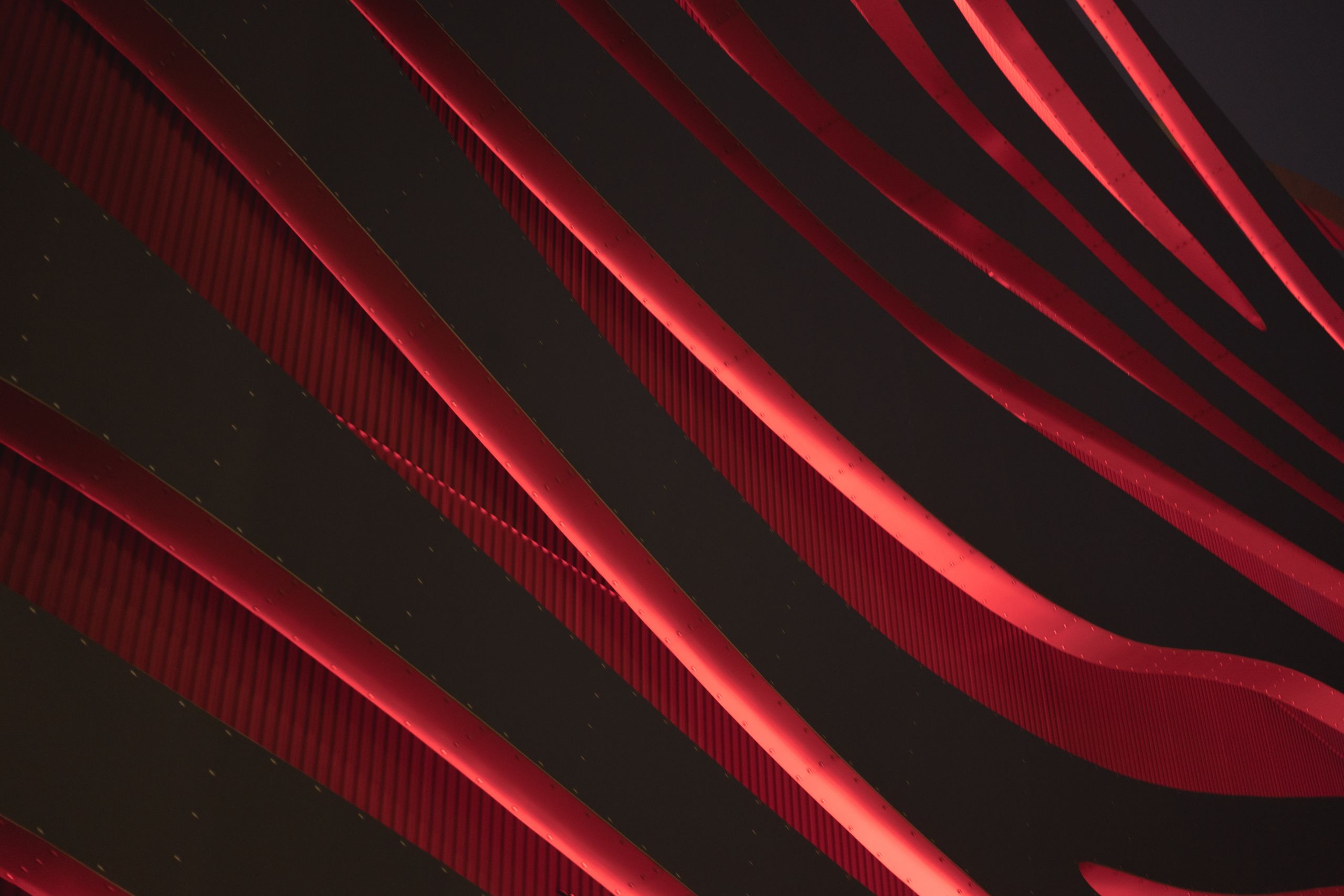
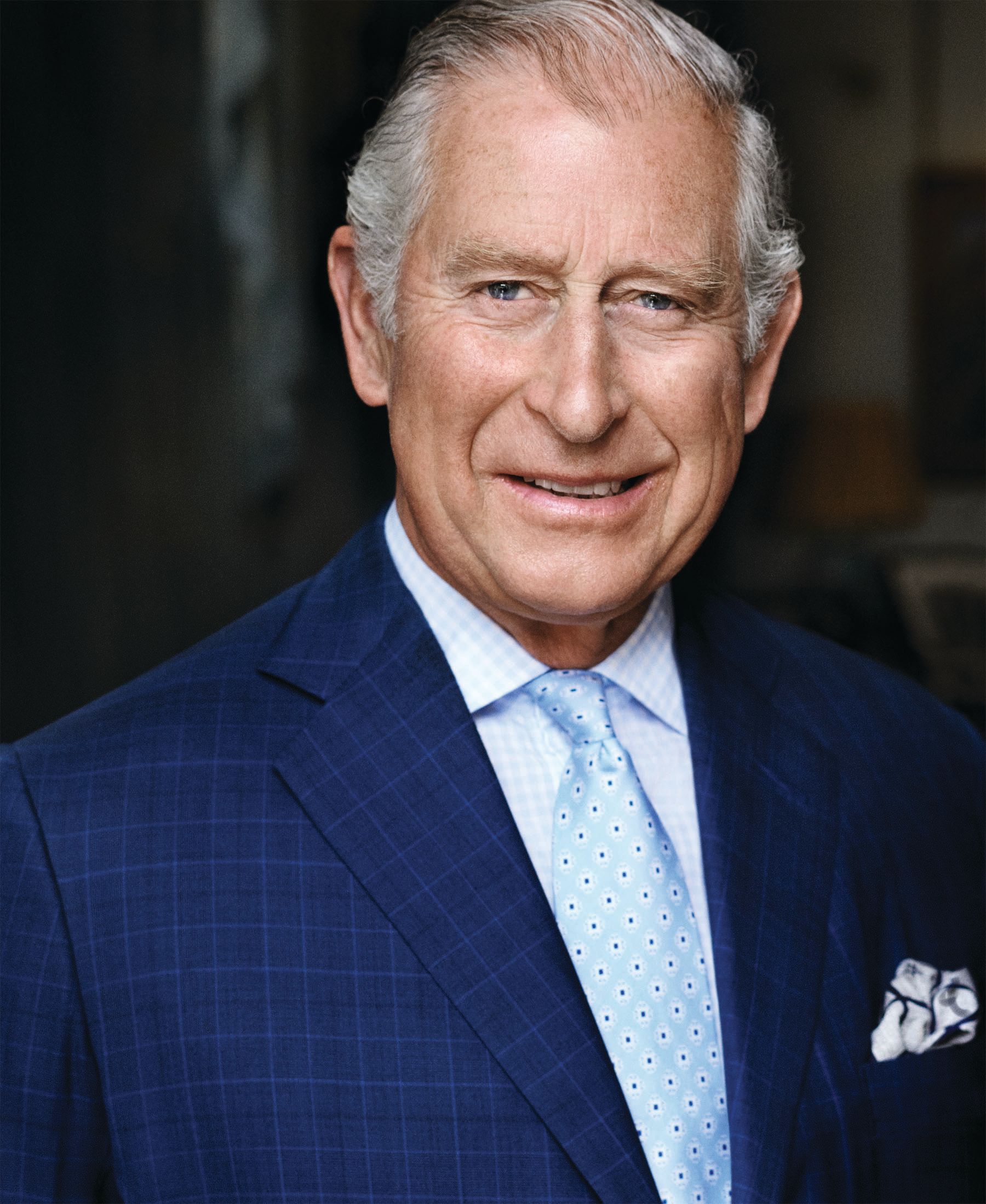
© Mario Testino

As Patron of the Donatella Flick Conducting Competition, I am very pleased to be able to welcome you to the final stage of this unique event.
This year’s competition marks more than thirty years of continued support for young conductors. The Conducting Competition, in partnership with the London Symphony Orchestra, has consistently fostered new talent and it will, I am sure, be an enjoyable experience to see the Orchestra work together with tonight’s winner.
It is hard to imagine a year more difficult than 2020 for aspiring conductors, which is why this year’s delayed competition is all the more important.
Many aspects of life have become more uncertain during the past twelve months, but, despite all difficulties, music retains its power to inspire and to console. We owe a great debt of gratitude to all those whose talent makes it possible for music to uplift and sustain us, which is why I wish all those connected with this year’s competition every possible success.


© Mario Testino
© Mario Testino
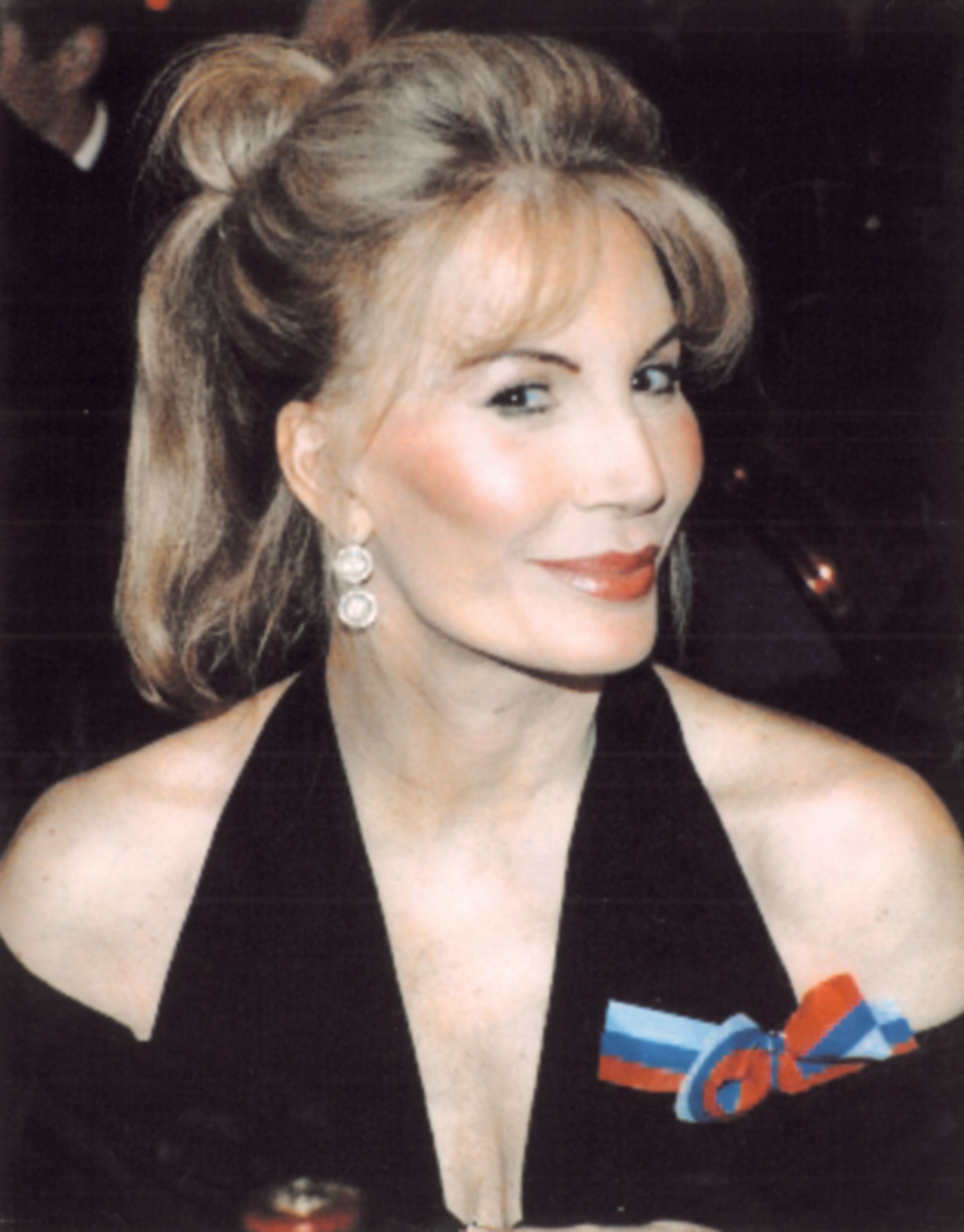
Donatella Flick
Founder of the Competition

It is a pleasure to welcome you to the Final of the 2021 Donatella Flick LSO Conducting Competition, which I founded 31 years ago in 1990, under the kind patronage of His Royal Highness The Prince of Wales.
The coronavirus pandemic has had a devastating impact on the international music industry, and musicians and conductors have keenly felt the impact on their livelihoods. After having to reschedule this year’s competition due to national restrictions, it is with great joy that we come together once again for this year’s final.
The Competition’s principal aim is to bridge the gap between conservatoire training and professional life for emerging young conductors. Since 1996, the Competition has had the honour to have the London Symphony Orchestra play for the Final, and since 2012 the LSO and the Competition have forged a partnership whereby the administration has been undertaken by the Orchestra. I continue to take a central role in the Competition’s organisation and take great pleasure in supporting it.
In addition to an award of £15,000, the winner will have the opportunity to become Assistant Conductor with the London Symphony Orchestra. During this time the winner will work with the LSO’s family of conductors on the preparation of concerts, often on the assessment of new scores, take part in the LSO’s education and outreach programme, LSO Discovery, accompany the Orchestra on tour and, should the opportunity arise, conduct the LSO in concert.
I am delighted to be able to introduce a most esteemed panel of judges this year, including conductors Andrew Constantine (winner of the first ever Donatella Flick Conducting Competition), Sian Edwards and Carlo Rizzi; composer and conductor Sir James MacMillan; LSO Principal Second Violin and current LSO Chair David Alberman; LSO Principal Bassoon Rachel Gough; and Lennox Mackenzie, former LSO Sub-Leader and LSO Chair, who is Chair of our Jury tonight. I hope you enjoy tonight’s Final of this year’s Competition.
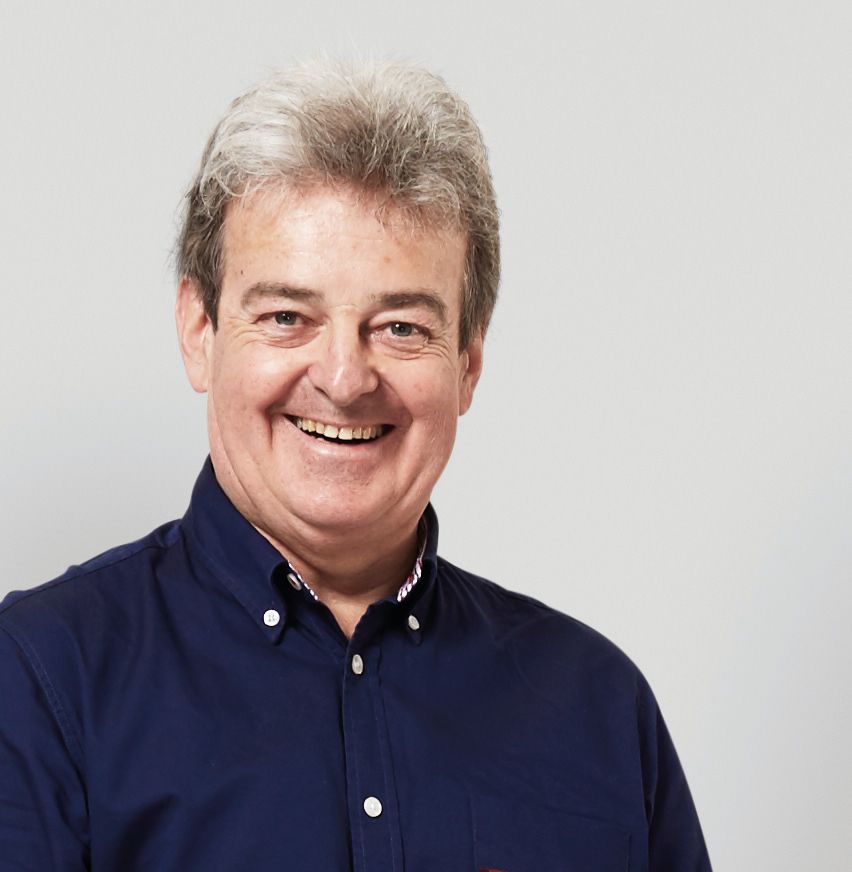
Lennox Mackenzie
Chair of the Jury

It gives me great pleasure to warmly welcome you to tonight’s Final of the Donatella Flick LSO Conducting Competition. Our three finalists have been chosen from 86 applicants, and then selected from a shortlist of 20 talented young conductors who have spent the past two days here at LSO St Luke’s conducting music from the Classical, Romantic and Contemporary periods, including works by Haydn, Wagner and Sir James MacMillan. They also accompanied soloists in the concerto form. Tonight we see them competing for the coveted titles of Competition Winner and LSO Assistant Conductor for the coming year.
The choice of music in the Final reflects a desire to see the candidates conduct a number of different styles, and the running order of the programme enables the Jury and the audience to compare the candidates closely in similar repertoire.
Tonight’s Competition would simply not be possible without the extraordinary generosity and the passionate enthusiasm of Donatella Flick in creating and sustaining it. On this occasion we celebrate the 30th anniversary of the Competition which inspires the next generation of conductors. The LSO is delighted to be working closely with her once again.
I would also like to take this opportunity to extend a warm welcome to those who join me on our esteemed panel of judges, and sincerely thank them for their commitment to the Competition. Whilst the other members of the Jury and I look forward to our task ahead this evening and to enjoy the differing interpretations, I know there will be a difficult decision to make at the end!
Finally, many thanks to our broadcast partner medici.tv – which is broadcasting tonight’s Final live – for its support of the LSO and the Donatella Flick LSO Conducting Competition.
I very much hope you enjoy this evening’s Final.
Competition Stages
This evening’s three conductors have progressed through a number of stages to qualify for the Final Round of the Competition. Applications opened in December 2019 to conductors under the age of 30 from the European Union, the United Kingdom, Norway, Iceland, Liechtenstein and Switzerland. Applicants were required to send a video recording of recent performances or rehearsals of them conducting three contrasting pieces.
A selection panel of experts reviewed all the applications and chose 20 candidates to enter Round One of the Competition.
ROUND ONE
Friday 21 May 2021, LSO St Luke's
20 candidates were invited to rehearse and conduct the LSO in extracts from:
Haydn Symphony No 86
Beethoven Symphony No 8
Wagner Siegfried Idyll
ROUND TWO
Saturday 22 May 2021, LSO St Luke's
Ten semi-finalists were invited to rehearse and conduct the LSO in extracts from:
Mozart Piano Concerto No 24 (soloist Michael McHale)
Schumann Cello Concerto (soloist Rebecca Gilliver)
Sir James MacMillan Tryst
WNO Associate Conductor in collaboration with the Donatella Flick LSO Conducting Competition 2021
Welsh National Opera is delighted to continue its association with the Competition by offering one of the Finalists the opportunity to join the Company as WNO Associate Conductor for the 2022/23 Season. Previous WNO Associate Conductors have included Competition Finalists Kerem Hasan and Harry Ogg. The WNO Associate Conductor will have the opportunity to work with WNO’s Music Director, Tomas Hanus, as well as on a range of productions, concerts and engagement activity in Cardiff and at some of the Company’s touring venues in Wales and England.
Sunday 23 May 2021
Donatella Flick LSO Conducting Competition 2021
Giuseppe Verdi Overture: Nabucco
Performed three times, conducted in turn by
each finalist:
A – Martijn Dendievel
B – Chloe Rooke
C – Julio García Vico)
Johannes Brahms Variations on the St Anthony Chorale
Theme and Variations I, II and III
Finalist B – Chloe Rooke
Theme and Variations IV, V and VI
Finalist C – Julio García Vico
Theme, Variations VII, VIII and Finale
Finalist A – Martijn Dendievel
Antonín Dvořák Slavonic Dances Op 72
Dances 2 and 1
Finalist C – Julio García Vico
Dances 3 and 5
Finalist A – Martijn Dendievel
Dances 6 and 7
Finalist B – Chloe Rooke
London Symphony Orchestra
This performance is broadcast on medici.tv. Available to watch for free (free account required).
Broadcast live from LSO St Luke's on Sunday 23 May in COVID-19 secure conditions.
Giuseppe Verdi
Overture: Nabucco
✒️1842 | ⏰8 minutes

Performed three times.
Conducted in turn by each finalist:
A – Martijn Dendievel
B – Chloe Rooke
C – Julio García Vico
Staged at La Scala, Milan, in March 1842, Nabucco was Verdi’s third work for the stage. Its spectacular success marked a new epoch in Italian opera. Also premiered at Italy’s leading theatre, neither of Verdi’s previous operas – the modest success Oberto, conte di San Bonifacio (1839), and Un giorno di regno (1840), an utter failure – suggested the breakthrough just around the corner; Verdi had even considered abandoning composition after his first opera flopped.
Yet Nabucodonosor – as it was originally called before the familiar, shortened version of the title took hold – absolutely hit the spot. Quite apart from its musical qualities, the subject – that of the Israelites defeated and led off into captivity in Babylon, where they are eventually vindicated by the conversion of King Nebuchadnezzar to the worship of Jehovah – represented the first occasion on which the composer’s chosen dramatic theme chimed in with the nationalist aspirations of the Italian people. Musically the quality is high throughout, evincing a new grandeur and a breadth of emotional compass. The dramatic sweep of the writing has new purpose, the characterisations greater power than hitherto.
The opera had 67 performances at La Scala before the end of the year, and soon made its way to Vienna, Lisbon, Barcelona, Berlin, Paris, London and New York, all by 1848, making Verdi’s name known internationally.
Providing an exciting introduction to the drama, the overture uses several ideas representing the conflict in the opera. A contrasting middle section is provided by the melody of the ‘Chorus of the Hebrew Slaves’, which would go on to assume virtually the status of a second national anthem in Italy.
Note by George Hall
Giuseppe Verdi
1813–1901 (Italy)

Verdi revolutionised Italian opera, finding a powerful musical expression for such themes as abduction, murder, premature death and seduction in early mature works like Rigoletto and La traviata and, in later life, brilliantly translating Shakespeare’s Othello and Falstaff to the operatic stage. Keyboard and other musical studies in Le Roncole and nearby Busseto nurtured the boy’s natural talent; however, he failed to gain a place at the Milan Conservatory. Undeterred, he studied with Vincenzo Lavigna and duly became Maestro di Cappella in Busseto.
His first marriage ended tragically with the death of his wife in 1840. By then Verdi had completed his first opera, Oberto, which was performed in 1839 at La Scala, Milan. A series of works was commissioned by the illustrious Milanese theatre, including Nabucco and I lombardi. Their public success led to further commissions elsewhere, with new works created for Venice, Paris, London and Florence. His international profile was enhanced with the triumphant first productions of Rigoletto (1851), Il trovatore (1853) and La traviata (1853).
After the censors refused to allow the theme of regicide in Un ballo in maschera (1859), Verdi’s work was championed by Italy’s nationalist movement. Between the composition of Aida (1871) and Otello, created for La Scala in 1887, Verdi wrote little for the stage. His final opera, Falstaff, was immediately recognised as a masterpiece.
Composer profile by Andrew Stewart
Johannes Brahms
Variations on the St Anthony Chorale
✒️1873 | ⏰21 minutes
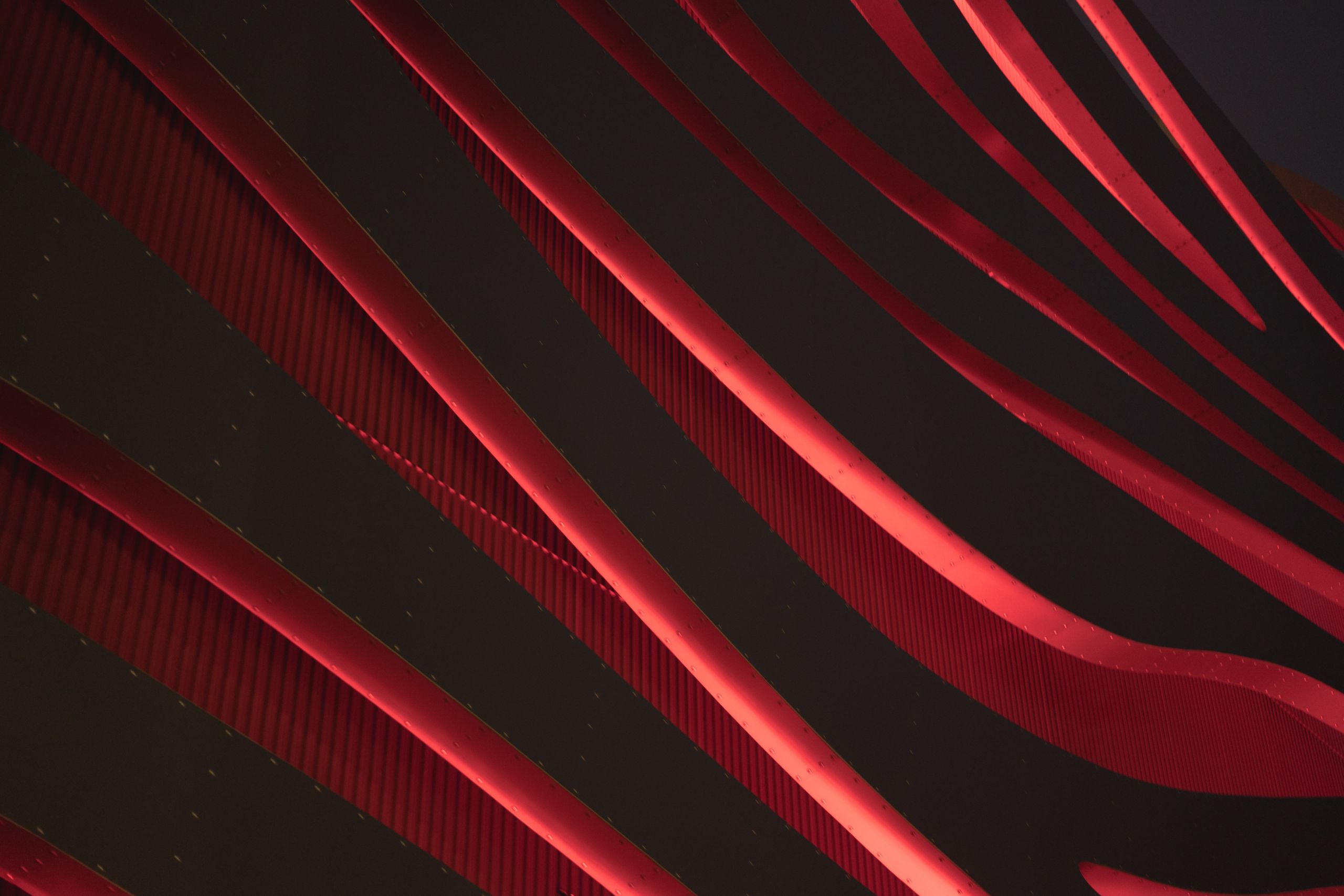
1 Theme – Chorale St Antoni (Andante)
2 Variation I – Poco più animato (Andante
con moto)
3 Variation II – Più vivace (Vivace)
4 Variation III – Con moto
Conducted by Finalist B – Chloe Rooke
5 Theme – Chorale St Antoni (Andante)
6 Variation IV – Andante con moto (Andante)
7 Variation V – Vivace (Poco presto)
8 Variation VI – Vivace
Conducted by Finalist C – Julio García Vico
9 Theme – Chorale St Antoni (Andante)
10 Variation VII – Grazioso
11 Variation VIII – Presto non troppo (Poco presto)
12 Finale – Andante
Conducted by Finalist A – Martijn Dendievel
In 1870 Karl Ferdinand Pohl, who was researching his biography of Haydn, showed Brahms some divertimenti for wind band. The second movement of the first of these, headed ‘Choral St Antoni’ immediately struck Brahms as a suitable theme for variations: it had a clear and memorable harmonic and melodic structure, but with an unusual five-bar phrasing. As it happens, the divertimenti are certainly not by Haydn, nor has the chorale been properly identified. Some have suggested that it is a traditional Austrian pilgrims’ hymn, others that is was by the unknown composer of the divertimenti. No matter: Brahms believed his theme to be by Haydn, and was keen to pay tribute to a composer he always greatly admired.
The theme is presented as Brahms originally found it, the orchestration adapted but still featuring the reedy woodwind colours of the original. There follow eight variations, widely contrasted in mood, tempo and colour, but all preserving the five-bar phrasing of the theme and closely following its harmonic pattern. The finale is built on a repeated phrase derived from the bass of the original theme. In the course of this work, Brahms uses any number of intricate contrapuntal devices, but with a remarkable lightness of touch: the ingenuity is all below the surface, lending strength to the natural flow of the music.
Brahms made two versions of the Variations, one for two pianos and one for orchestra. He played the piano version with Clara Schumann in August 1873 and conducted the first performance of the orchestral version in Vienna that November. Although he was 40 years old, this was his first major work for orchestra alone, and is actually the first significant independent set of variations for orchestra.
Note by Andrew Huth
Johannes Brahms
1833 (Germany) – 1897 (Austria)

Johannes Brahms was born in Hamburg, the son of an impecunious musician. Showing early musical promise he supplemented his parents’ meagre income by playing in the bars of Hamburg’s red-light district. In 1853 Brahms presented himself to Robert Schumann in Düsseldorf, winning unqualified approval from the older composer. In 1862 Brahms moved to Vienna where he found fame as a conductor, pianist and composer. The Leipzig premiere of his German Requiem in 1869 proved a triumph, with subsequent performances establishing Brahms as one of the emerging German nation’s foremost composers. Following the long-delayed completion of his First Symphony in 1876, he composed in quick succession the majestic Violin Concerto, the two piano Rhapsodies, Op 79, the First Violin Sonata in G major and the Second Symphony.
In his final years, Brahms composed a series of profound works for the clarinettist Richard Mühlfeld, and explored matters of life and death in his Four Serious Songs. He died in 1897, receiving a hero’s funeral three days later.
Composer profile by Andrew Stewart
Antonín Dvořák
Slavonic Dances Op 72
✒️1886 | ⏰24 minutes

1 No 2 (Starodávný)
2 No 1 (Odzemek)
Conducted by Finalist C – Julio García Vico
3 No 3 (Skočná)
4 No 5 (Špacírka)
Conducted by Finalist A – Martijn Dendievel
5 No 6 (Starodávný)
6 No 7 (Kolo)
Conducted by Finalist B – Chloe Rooke
Dvořák’s first set of Slavonic Dances Op 48 were composed in 1878 when he was a relative unknown, and helped boost his career. Bolstered by its popularity, the publisher was keen to reproduce the success. But life had changed for Dvořák and he had become quite the international star. To the request, he rather grandly responded ‘I have not the slightest inclination to think of such light music at present.’ In reality he was concerned about the 19th-century equivalent of the tricky second album: ‘To do the same thing twice is devilishly difficult’ he went on to comment. However, Simrock prevaricated and eventually Dvořák conceded; the second set was duly delivered in 1886, receiving the same rapt enthusiasm as the first.
In both sets of Slavonic Dances, Dvořák draws on traditional music from his Bohemian and Moravian homeland. While they are not exact authentic replicas, he takes each dance’s DNA and fashions it into his own interpretation, making them a perfect choice to test a conductor’s prowess: every dance presents its own characteristic, with some tricky unexpected changes in tempo and style within some of the movements. The conductor will need to show an innate understanding of each dance’s personality.
The Odzemek (No 1), traditionally danced by men, has the characteristics of ‘boldness and pride’. The second dance, by contrast takes the pace down a step, sliding into a more sombre minor key for a Starodávný (No 2) –difficult to translate, it suggests a cherished memory such as a first love, explaining the yearning element to this movement, especially the graceful descending chromatic scale at the end of the phrase. A swagger and a sense of bravura pervades the Skočná (No 3), a ‘leaping couples’ dance implied in the opening bars. Špacírka (No 5) assimilates from the Czech word for ‘promenade’ – its initial swagger as the dancers walk around transforms into the exhilarating central whirl. A charming Starodávný (No 6) minuet is followed by a contrasting Kolo (No 7), an exhuberant couples dance.
Note by Sarah Breeden
Antonín Dvořák
1841–1904 (Bohemia, now Czech Republic)

Dvořák developed a love of folk tunes at an early age. When he was 12, he left school and was apprenticed to become a butcher, at first working in his father’s shop and later in the town of Zlonice. His first musical job was as a viola player, although he supplemented his income by teaching. In the mid-1860s he began to compose a series of large-scale works, including his Symphony No 1, ‘The Bells of Zlonice’. Two operas, a second symphony, many songs and chamber works followed before Dvořák decided to concentrate on composition. Johannes Brahms lobbied the publisher Simrock to accept Dvořák’s work, leading to the publication of his Moravian Duets and a commission for a set of Slavonic Dances.
The nationalist themes expressed in Dvořák’s music attracted considerable interest beyond Prague. In 1883 he was invited to London to conduct a concert of his works, and he returned to England often to oversee numerous premieres, including his Seventh Symphony and Requiem Mass. His Ninth Symphony, ‘From the New World’ – a product of his American years – confirmed his place among the finest of late 19th-century composers.
Composer profile by Andrew Stewart
The Jury

Lennox Mackenzie OBE
Chair of the Jury

Lennox Mackenzie was born in Aberdeen, Scotland and began playing the violin aged six. In 1971 he won the ABRSM scholarship to study at the Royal Academy of Music, where he became a founder member of the Arditti String Quartet.
He joined the LSO in 1980 as Principal First Violin and became Sub-Leader in 1985, affording him the opportunity of occasionally leading the Orchestra under the baton of some of the LSO’s foremost conductors, including Claudio Abbado, Michael Tilson Thomas, André Previn, Valery Gergiev, Lorin Maazel and Pierre Boulez. Lennox served as LSO Chair for a four-year period in the 1980/90s and again between 2004 and 2016, before his retirement as a Member of the Orchestra in 2018. He was made a Fellow of the Royal Academy of Music in 2015, and was awarded an OBE and the RPS/ABO Salomon Prize.
David Alberman
Principal Second Violin and LSO Chair

Born in London, David Alberman received his LRAM diploma from the Royal Academy of Music at 16. After playing with the Academy of St Martin in the Fields and the LSO, he became Leader of the Chamber Orchestra of Europe. A long-standing interest in contemporary music led him in 1986 to join the internationally renowned Arditti Quartet, with whom he took part in the world premieres of more than 200 works, and made a number of recordings which won prizes internationally. In 1995 he formed a duo with pianist Rolf Hind, and, in 1998, became Principal Second Violin of the LSO. David enjoys coaching, has appeared as Guest Leader for the LSO, London Philharmonic, BBC Symphony, BBC Scottish Symphony, Scottish Chamber and Bergen Philharmonic Orchestras, and the Bayrischer Rundfunkorchester, and as soloist with the Orchestre de Lille, BBC National Orchestra of Wales and the ORF Radio Symphony Orchestra in Vienna, among others.
Andrew Constantine
conductor

Andrew Constantine serves as Music Director of both the Fort Wayne Philharmonic and the Reading Symphony Orchestra. In 2004, he moved to the US to become Assistant Conductor of the Baltimore Symphony Orchestra. Within his first season there he was promoted to Associate Conductor. In May of 2007, he was appointed Music Director of the Reading Symphony Orchestra in Pennsylvania. In July of 2009, he was also appointed Music Director of the Fort Wayne Philharmonic in Indiana.
After winning the first Donatella Flick/Accademia Italiana Conducting Competition, he made his Royal Festival Hall debut with the London Philharmonic. He has worked regularly with the UK’s leading symphony orchestras including the Philharmonia, Royal Philharmonic and LSO, and many others throughout Europe, including the St Petersburg Philharmonic and the NWD-Philharmonie.
Sian Edwards
conductor

Currently Head of Conducting at the Royal Academy of Music, Sian Edwards has worked with many of the world’s leading orchestras including the Los Angeles Philharmonic, Orchestre de Paris, Berlin Symphony, Frankfurt Radio Symphony Orchestra, Vienna Symphony Orchestra and London Sinfonietta. She has a particularly close relationship with Ensemble Modern in Germany.
She made her operatic debut in 1986 conducting Weill’s Mahagonny for Scottish Opera and her Royal Opera House debut in 1988 with Tippett’s The Knot Garden. Sian is perhaps best known for her work as Music Director of English National Opera from 1993 to 1995, where her repertoire included Mussorgsky’s Khovanshchina, Janáček’s Jenůfa and Tchaikovsky’s The Queen of Spades.
Rachel Gough
LSO Principal Bassoon

Rachel Gough read anthropology and music at King’s College, Cambridge, before gaining scholarships for postgraduate study at the Royal Academy of Music and the Hannover Hochschule für Musik with Klaus Thunemann. During this time, she was Principal Bassoon of the European Community Youth Orchestra and won the Gold Medal at the Royal Overseas League. Prior to joining the LSO in 1999, Rachel was Co-Principal with the BBC Symphony Orchestra and a professor at the Royal Academy of Music, where she is now a Fellow.
Rachel has appeared as a soloist with Sir Colin Davis, Valery Gergiev, Bernard Haitink, Sir Neville Marriner, Gianandrea Noseda and Gennady Rozhdestvensky. Several solo works have been written for her, including the London Concerto by Huw Watkins, commissioned as part of the LSO’s centenary celebrations. She has been a previous jury member on the Donatella Flick Conducting Competition and the ARD International Music Competition in Munich.
Sir James MacMillan
composer and conductor

Sir James MacMillan is one of today’s most successful composers and is internationally active as a conductor. He first became recognised after the success of The Confession of Isobel Gowdie at the BBC Proms in 1990. His major works include percussion concerto Veni, Veni, Emmanuel, which has received close to 500 performances, a cello concerto for Mstislav Rostropovich and five symphonies. Recent major works include his Percussion Concerto No 2 for Colin Currie and his Symphony No 5, written for The Sixteen, which was premiered at the Edinburgh International Festival.
He enjoys a flourishing career as conductor of his own music alongside a range of contemporary and standard repertoire. He has conducted orchestras such as the National Symphony Orchestra Washington, Frankfurt Radio Symphony Orchestra, Baltimore Symphony, Munich Philharmonic, Vienna Radio Symphony and Los Angeles Philharmonic. He was Principal Guest Conductor of the Netherlands Radio Kamer Filharmonie until 2013 and Composer/Conductor of the BBC Philharmonic from 2000 to 2009.
Carlo Rizzi
conductor

Carlo Rizzi is one of the world’s foremost operatic conductors, and regularly appears as a guest artist at major international venues and festivals. Equally at home in the opera house and the concert hall, his repertoire spans from significant works in the operatic and symphonic canon to rarities by Bellini, Cimarosa and Donizetti to Giordano, Pizzetti and Montemezzi. Combining expertise in vocal art with theatrical flair and practical collaborative skills honed in the world’s finest theatres, he is considered a master of the operatic craft by singers and audiences alike.
Born in Milan, Rizzi studied at the city’s conservatoire, and following his graduation was employed as a repetiteur at the Teatro alla Scala. He launched his conducting career in 1982 with a production of Donizetti’s L’ajo nell’imbarazzo, and has now performed over 100 operas, with a broad repertoire that is rich in Italian works in addition to the major works of Mozart, Wagner, Strauss, Britten, Mussorgsky, Martinů and Janáček.
The Conductors

Félix Benati
(24, France)

Félix Benati began his musical studies in piano but graduated in orchestral and choral conducting and musical analysis. He currently studies conducting at the Conservatoire National Supérieur de Musique de Paris, taught by Alain Altinoglu, and has worked with renowned conductors and orchestras including Ensemble InterContemporain, Mikko Franck, Bertrand de Billy, Orchestre de Picardie, Pascal Rophé and Miskolci Szimfonikus Zenekar. He also studied composition with Benoît Menut, and has maintained an enthusiasm for contemporary repertoire discoveries ever since.
In 2017 he co-founded the vocal ensemble Les Temps Dérobéssince which he continues to conduct. He has been musical co-director of the company Ensemble Poursuite since 2019. Félix worked in India with the Calcutta Chamber Orchestra in August 2017, and with Calcutta’s Oxford Mission, giving young children opportunities to discover orchestral music. He teaches music and choral singing in several Paris conservatoires.
Teresa Riveiro Böhm
(31, Austria/Spain)

Austrian-Spanish conductor Teresa Riveiro Böhm is currently a Leverhulme Conducting Fellow with the BBC Scottish Symphony Orchestra, in partnership with the Royal Conservatoire of Scotland (2019–21). She was awarded the Neeme-Järvi-Prize at the Gstaad Menuhin Festival 2019, was chosen to participate in the Conductors Academy with Paavo Järvi and the Tonhalle-Orchester Zürich in 2021, and as Tanglewood Conducting Fellow in 2021. Orchestral highlights include appearances with the BBC Scottish Symphony Orchestra, Basel Chamber Orchestra, St Petersburg Chamber Philharmonic, Südwestdeutsche Philharmonie Konstanz and Geneva Chamber Orchestra. Forthcoming engagements include the National Orchestra of Spain, Spanish Radio and Television Symphony Orchestra and Aalborg Symphony Orchestra. Teresa studied violin in Moscow and church music and conducting in Vienna. As an Assistant she has worked with Thomas Dausgaard, Alpesh Chauhan and Donald Runnicles. She has participated in masterclasses with David Zinman, Manfred Honeck, Johannes Schlaefli, Sian Edwards and Martyn Brabbins.
Martijn Dendievel
(25, Belgium)

Martijn Dendievel received his first violin lessons when he was three years old and would later learn cello, recorder and percussion. Aged 14, he was admitted to the Conservatory of Brussels where he studied music theory, conducting and recording techniques. In 2015 he moved to Weimar as an Erasmus student and now continues his studies in orchestral conducting with Nicolás Pasquet and Ekhart Wycik. He has taken part in masterclasses with Bernard Haitink, Christian Thielemann and Iván Fischer.
Dendievel is the winner of the 2018 MDR Symphony Orchestra conducting competition and in September 2019 he won both the first prize and audience prize at the Louis Spohr Conducting competition in Kassel. Since 2018, Dendievel has been the assistant conductor of the Flanders Symphony Orchestra, based in Ghent. Among others he has conducted the Belgian National Orchestra, Hofer Symphoniker, Bremer Philharmoniker, Antwerp Symphony Orchestra and philharmonie zuidnederland.
Chloé Dufresne
(29, France)

French-born conductor Chloé Dufresne was a finalist of the Siemens-Hallé Conductors Competition 2020, a laureate of the Tremplin des jeunes cheffes with the Philharmonie de Paris and a semi-finalist of the Donatella Flick LSO competition 2018. She graduated in 2020 as a master in orchestral conducting from the Sibelius Academy in Helsinki.
For the last five years she has studied at the Sibelius Academy and at the Conservatoire National Supérieur de Musique de Paris under the guidance of Sakari Oramo, Atso Almila and Alain Altinoglu. She has conducted the Finnish Radio Symphony, Helsinki City Orchestra, Royal Stockholm Philharmonic, Tapiola Sinfonietta and Ensemble Intercontemporain.
In recent years, Dufresne has conducted concerts at the Opéra National de Toulon, Opéra de Rouen, Opéra de Vichy and Orchestre Pasdeloup. In the 2020/21 season, her engagements include a debut with Opéra National de Lorraine, Opéra de Tour and Opéra National de Montpellier.
Nathaniel Efthimiou
(28, Finland)

Nathaniel Efthimiou is the Assistant Conductor of the Boston Civic Symphony, a frequent cover conductor for the Rhode Island Philharmonic, and the Assistant Director of Music at Park Street Church in downtown Boston. In 2015, he won the James Conlon Conductor Prize at the Aspen Music Festival and School. Nathaniel is a protégé of Bramwell Tovey and has studied with conductors such as Robert Spano, Larry Rachleff and Hugh Wolff. In 2017, he completed an Artistic Administration Internship with the Memphis Symphony Orchestra. He has assisted conductors such as David Robertson, Pinchas Zuckerman and Steven Karidoyanes as well as Anna-Maria Helsing with the BBC Concert Orchestra. Nathaniel has earned degrees in composition and conducting from Greatbatch School of Music at Houghton College and a Doctor of Musical Arts in conducting from Boston University. Nathaniel holds dual citizenship in the US and Finland and currently resides in Boston, Massachusetts.
Ka Hou Fan
(30, Portugal)

From 2010 to 2015, Fan studied orchestral conducting at the University of Music and Performing Arts Vienna. He also received the Erasmus scholarship to study orchestral conducting at the Hochschule für Musik Franz Liszt Weimar in 2014. He was a semi-finalist in the seventh International Competition of Young Conductors Lovro von Matačić, German Conductors’ Award, Princess Astrid International Music Competition and the Maestro Solti International Conducting Competition.
In 2019 he joined the Nationale Master Orkestdirectie, a joint programme by the Conservatorium van Amsterdam and the Royal Conservatoire of The Hague, in which he assists various conductors and professional orchestras in the Netherlands and all over the world.
Nicolò Foron
(23, Germany/Italy)

Nicolò Foron is a young Italian-German conductor, pianist and composer. Discovered at the age of ten by Jorma Panula, he has been praised for his versatile concert programmes and efficient rehearsals. He has assisted renowned conductors including Peter Eötvös, Martyn Brabbins, Lorin Maazel, Alan Gilbert, Bernhard Haitink, Sir Antonio Pappano and Riccardo Muti. During the years of his artistic development, he gathered extensive experience of a wide symphonic, operatic and contemporary repertoire. He has conducted in Amsterdam at the Grachtenfestival and at the Opera Forward Festival in cooperation with the National Opera Amsterdam. He recorded Beethoven’s Symphony No 7 at Abbey Road Studios for the Royal College of Music, where he currently studies. Besides the Donatella Flick Conducting Competition, he will be taking part in the final rounds of the Rotterdam and Toscanini competitions.
Thomas Goff
(28, United Kingdom)

Thomas Goff is a British musician living in the Netherlands. Having studied as a composer, cellist and jazz pianist, he went on to study conducting as the Oglesby Scholar at the Royal Northern College of Music, graduating with the Brierly/Kershaw Prize in Conducting. Since moving to The Hague, Thomas has worked as assistant conductor with most of the orchestras in the Netherlands. He has conducted performances with Noord Nederlands Orkest, Dutch National Opera Academy, and AskoSchönberg in venues including the Royal Concertgebouw. In 2018 he conducted at the Rotterdam Philharmonic’s Gergiev Festival in a masterclass with Valery Gergiev followed by a concert tour. In different contexts, he has conducted the Netherlands Philharmonic, BBC Philharmonic, BBC National Orchestra of Wales, Ulster Orchestra, Residentie Orkest, Cadaqués Orchestra and philharmonie zuidnederland. He has also studied in masterclasses with Valery Gergiev, Daniele Gatti, Sir Mark Elder, Marc Albrecht, Vasily Petrenko and Juanjo Mena.
Victor Jacob
(29, France)

French conductor Victor Jacob is currently assistant conductor of the Liège Royal Philharmonic Orchestra and music director of the Orchestre National de Lyon Youth Orchestra. Finalist and ‘Prix Spécial’ in the Besançon Conducting Competition 2019, Victor is regularly invited to work with orchestras in Europe and abroad, including the Orchestre National de Lyon, Orchestre Philharmonique de Marseille, Moscow State Philharmonia, Orchestre National de Montpellier, Orquestra Sinfonica Simón Bolívar de Venezuela, Orchestre Symphonique de Mulhouse and Esbjerg Ensemble in Denmark.
In opera productions, Victor has conducted or assisted the Orchestre National de Montpellier, Orchestre Philharmonique de Monte-Carlo, Orchestre Symphonique de La Monnaie, Orchestre National de France and Orchestre Philharmonique de Radio-France. Victor graduated from the Royal Academy of Music in London and the Conservatoire National Supérieur in Paris. He was trained by Alain Altinoglu, Marin Alsop, Sian Edwards, David Zinman, Lawrence Foster and Bernard Haitink.
Jacob Joyce
(28, Germany)

Jacob Joyce is currently serving his third season as the Associate Conductor of the Indianapolis Symphony Orchestra. He made his debut with several American orchestras in 2019/20, including the Detroit, St Louis, Houston and Toledo symphonies. For his work in Indianapolis and across the United States, Joyce was awarded a Solti Career Assistance Award in 2020. Joyce also previously served as the Conducting Fellow for the Fort Worth Symphony.
He has worked extensively in Europe, conducting the Frankfurt Radio Symphony Orchestra, the NDR Sinfonieorchester and the Frankfurt Museums-orchester. He has also appeared as a semi-finalist in both the Donatella Flick LSO Conducting Competition and the Solti International Conducting Competition. Joyce studied Orchestral Conducting with Hugh Wolff at the New England Conservatory, and graduated from Yale College in 2014, with a BA in Music and Economics.
Nicolas Kierdorf
(26, Germany)

Nicolas Kierdorf studied with Michael Luig and Stephan Wehr in Cologne and continued his studies with Ulrich Windfuhr in Hamburg. He works regularly with the Hamburger Symphoniker and has also worked with the WDR-Sinfonieorchester, the Gürzenich-Orchester and the Südwestfälische Philharmonie Konstanz. He has attended numerous masterclasses with Kent Nagano, Nicolás Pasquet and Johannes Schlaefli, among others.
Nicolas is interested in symphonic music as well as opera and has conducted performances of Humperdinck’s Hänsel und Gretel, Handel’s Alcina, Nicolai’s The Merry Wives of Windsor and Mozart’s The Marriage of Figaro at the opera schools of Cologne and Hamburg. He has collaborated closely with the ensemble Concert Royal Köln, for whom he was music director in the 2018 opera-production of Cimarosa’s Il matrimonio segreto. In 2019, he was a semi-finalist for the prestigious Deutscher Dirigentenpreis. In autumn 2021 he will make his debut with the Camerata Hamburg at the Elbphilharmonie Hamburg.
Johannes Marsovsky
(27, Germany)

Johannes Marsovsky is conducting fellow at Dirigentenforum (Deutscher Musikrat) and assistant conductor to Iván Fischer and the Budapest Festival Orchestra. In this position he has also assisted conductors such as Manfred Honeck, Lahav Shani, Leonidas Kavakos and Michel Tabachnik. During his studies, Johannes was recipient of choral conducting competition prizes in Hungary (2015 and 2016), assisted Gergely Madaras, was the youngest semi-finalist in the 2017 Maestro Georg Solti Competition and was awarded a Bayreuth scholarship from the Budapest Richard Wagner Society.
In 2018 he took part in the Bayreuth masterclass with Christian Thielemann. He made his opera debut in 2019 with Puccini’s La bohème and assisted Christoph Ulrich Meier in a production at the Vienna University of Music. He was selected for the International Conducting Competition Rotterdam 2021.
Paul Marsovszky
(27, Germany)

Paul Marsovszky has been working as Assistant Conductor with Iván Fischer and the Budapest Festival Orchestra since 2019. During this time he has had the opportunity to work closely with world renowned artists such as Sir András Schiff, Elisabeth Leonskaja and Mia Persson. He has participated in several major conducting competitions, including the Deutscher Dirigentenpreis 2019 and the Maestro Solti Conducting competition 2017 in Budapest. In 2021 he has been selected to participate in the first International Conducting Competition Rotterdam.
Before his graduation in orchestra conducting from the Franz Liszt Academy of Music Budapest, he took part in Bernard Haitink’s masterclass at the Lucerne Easter Festival 2018. His interest in opera repertoire led him to assist Brian Schembri at Theater Lübeck for an opera production when he was 19 years old. In 2018 he received the Bayreuth Scholarship of the Richard Wagner Scholarship Foundation.
Nils Erik Måseidvåg
(28, Norway)

Third prize winner of the Princess Astrid International Music Competition, Nils Erik Måseidvåg is considered one of Norway’s greatest talents in conducting, and has regularly worked with Norwegian orchestras, including the Oslo Philharmonic, Bergen Philharmonic, Trondheim Symphony, Kristiansand Symphony, Stavanger Symphony, Arctic Philharmonic and the Norwegian Radio Orchestra. Having attended international masterclasses like the Gstaad Menuhin Conducting Academy and the Järvi Academy, Nils Erik has studied with Manfred Honeck, Johannes Schlaefli, Neeme Järvi, Paavo Järvi and Jorma Panula. In 2018/19 he was assistant conductor at the Bergen Philharmonic Orchestra, working closely with Chief Conductor Ed Gardner and Juanjo Mena. He recently concluded his studies at the Royal Danish Academy of Music with Giordano Bellincampi and Michael Schønwandt. There he conducted the Danish National, Odense, Aalborg, Sønderjylland and Aarhus Symphony Orchestras. Previous studies include a masters degree in conducting at the Norwegian Academy of Music with Ole Kristian Ruud and Sigmund Torp.
Chloe Rooke
(24, United Kingdom)

Highly Commended in the Women of the Future Awards, Chloe is currently undertaking the Dutch National Master in Orchestral Conducting. She has worked with the Residentie Orkest, Noord Nederlands Orkest, Phion Orkest van Gelderland & Overijssel, philharmonie zuidnederland, Southbank Sinfonia, Britten-Pears Orchestra, British Youth Opera and New Chamber Opera, assisting conductors including Sir Mark Elder, John Wilson, Antony Hermus, Ed Spanjaard and Jac Van Steen.
Passionate about music’s role in transforming lives, Chloe also conducts Street Orchestra Live – a young professional ensemble performing in unusual locations all over the country, with the mantra ‘Music for Anyone, Everywhere’. In July 2020 she completed an MA in Orchestral Conducting at the Royal Academy of Music, where she studied with Sian Edwards and was the recipient of the Ernest Read Conducting Prize. Prior to this she graduated with a first in Music from St Catherine’s College, Oxford.
Harry Sever
(29, United Kingdom)

British conductor and composer Harry Sever studied at Oxford University and trained at the Guildhall School of Music and Drama. Recent and upcoming engagements include Rossini’s The Barber of Seville (WNO), Offenbach’s Fantasio (Garsington), Verdi’s La traviata (Opera Holland Park Young Artists), Massenet’s Cendrillon (Bampton Classical Opera) and Tchaikovsky’s The Nutcracker (Peter Schaufuss Ballet), as well as projects with The Royal Danish Opera, Royal Birmingham Conservatoire and British Youth Opera.
He has worked on the music staff at English National Opera, Den Jyske Opera and the Grange Festival, collaborating with orchestras including the Bournemouth Symphony Orchestra, Odense Symfoniorkester, and the Britten Sinfonia and has performed at the Royal Albert Hall, Royal Festival Hall and the Barbican. Recent composition highlights include commissions for the Oxford Lieder Festival and Sell-A-Door productions. Passionate about outreach work, he is a regular collaborator with the Royal Opera House, ENO and Streetwise Opera, bringing music to the wider community.
Nikita Sorokine
(30, France)

Nikita Sorokine was born in Leningrad. He graduated from the St Petersburg State Conservatory in 2012 as a musicologist, and went on to analyse Mahler’s symphonies in collaboration with world-renowned Mahler authority Henry-Louis De La Grange. He then began conducting studies at the Conservatoire de Paris with Alain Altinoglu.
In 2016 he became assistant conductor to Leonard Slatkin for the Orchestre National de Lyon’s Tchaikovsky symphonies cycle. In 2019 he participated in a masterclass with Tugan Sokhiev and the Toulouse National Capitol Orchestra. In the summer of 2019 he was invited to be assistant conductor at Bregenz Opera Festival (Austria), where he worked on a staging of Tchaikovsky’s Eugene Onegin together with Valentin Uryupin. He has participated in numerous workshops with Ensemble Intercontemporain. Nikita won the All-Russian Conducting Competition which took place in 2019 in Moscow with the Moscow Philharmonic Orchestra.
Jonathan Stark
(26, Germany)

German conductor Jonathan Stark combines historically informed style with technical precision. As winner of the Athens International Conducting Competition 2019, he will make his debut with the Athens Philharmonia Orchestra and the Volksoper Wien in the 2020/21 season. He conducted contemporary ensemble works at the Vienna Musikverein and at the Wien Modern Festival. His work in the orchestra pit began in 2018 with Johann Strauss’ operetta A Night in Venice, followed by assistances at the Schlossfestspiele Langenlois and at the Volksoper Wien.
He completed his conducting training in Vienna with Andreas Stoehr and supplemented it with masterclasses with Jorma Panula and Michalis Economou. In August 2020, he launched the StarkConductor Blog, where he has since been blogging about various aspects of classical music and engaging with audiences.
Julio García Vico
(29, Spain)

Winner of the German Conductor’s Award 2019, the Oscar and Vera Ritter Stiftung Audience Award and the Opernfreunde Bonn 2019 Award, Julio García Vico will conduct the Beethoven Orchestra Bonn, Gürzenich Orchester Köln, Münchener Symphoniker, Oper Köln and WDR-Sinfonieorchester in the next season.
Julio won the Santa Cecilia Odero National Prize before studying at the RCSMM Madrid, where he won the First Performance Prize. He travelled to Munich to study contemporary music and became ‘Akademist’ at the Ensemble Modern Frankfurt. He is studying conducting with Rüdiger Bohn in Düsseldorf and a Philosophy degree at the UNED. He is a scholar of the German Music Council’s Dirigentenforum and has been conductor of the Collegium Musicum Aachen, the Komische Oper am Rhein, repetiteur of the Robert Schumann University (with baritone Konrad Jarnot) and musical director of the Operstudio at the Krefeld and Mönchengladbach theatres (Germany). He has been invited to festivals such as Manifeste Paris, Beijing-Music-Festival, Warszawska Jesień and Gaudeamus Muziekweek.
Agata Zając
(25, Poland)

Agata Zając is a Polish conductor born in 1995. For the 2020/21 season, she is a conductor-in-residence of the Toruń Symphony Orchestra. She graduated in conducting studies with a Master’s degree at the Academy of Music in Poznań. Since 2018, she has collaborated with the Warsaw Chamber Opera as an assistant conductor and also with the Malta Philharmonic Orchestra, Greek National Radio Orchestra and Athens Philharmonia Orchestra as an assistant of Michalis Economou. She has performed with l’Orchestre national de Metz, Karlovy Vary Symphony Orchestra, the Orchestra of Poznań Grand Theatre, Opole Philharmonic Orchestra and Schumann Youth Orchestra.
Agata has participated in many international masterclasses with Peter Eötvös, Marin Alsop, David Reiland as teachers. She has been invited to numerous competitions and auditions, including with the Polish National Radio Symphony Orchestra in Katowice, Warsaw Philharmonic Orchestra and the Orchestre national d’Île-de-France, where she was selected for the finals.
History of the Competition
The biennial Donatella Flick Conducting Competition was created by Donatella Flick, Princess Missikoff, and inaugurated in 1990 under the patronage of HRH The Prince of Wales.
Now established as one of the foremost international competitions for young conductors in Europe, its aim is to help a young conductor establish an international conducting career. In 1996, the Competition forged a unique and successful partnership with the London Symphony Orchestra.
The Competition – with an award of £15,000, given by Donatella Flick – is open to conductors under the age of 30 from the United Kingdom, European Union, Norway, Iceland, Liechtenstein and Switzerland. It also offers the winner an appointment as the LSO’s Assistant Conductor – to assist the LSO’s conductors in preparation for concerts by listening to rehearsals, preparing scores, supporting the Orchestra’s education programme, accompanying tours and, should the opportunity arise, conducting the LSO in concert. Welsh National Opera and the Aarhus Symphony Orchestra offer additional engagements.
The achievements of Donatella Flick and the Competition are numerous. They were recognised by the Jury of the Pro-European Foundation for Culture when Donatella Flick received the European Project Award for Music in Copenhagen in September 2000 and, in 2002, the Wilhelm Furtwängler Prize for her continuing encouragement of young conductors in this competition. In October 2006 Donatella Flick was awarded the Commendatore al Merito della Repubblica Italiana, presented by Carlo Azelio Ciampi, and in June 2007 she received the Montblanc de la Culture Arts Patronage Award, which was established in 1992 to honour and support patrons of the arts who have given exceptional time and energy to artists and their work.
Tonight’s concert is the climax of a competition held over three days. Twenty young conductors were shortlisted by a selection panel who looked carefully and critically at hours of video and mountains of supporting documentation. The chosen candidates have been conducting the LSO over the past two days, in a challenging programme before our distinguished Jury. The programme for tonight’s concert was decided and announced months ago, but which finalist would conduct each of the three works was only determined by lot after yesterday’s semi-final. All sessions have been attended by our Jury and the competitors are assessed on their performance at every stage of the Competition, including rehearsals.
Several conductors who have reached the coveted Final of the Competition have gone on to continue their work with the LSO following tenures as Assistant Conductors.
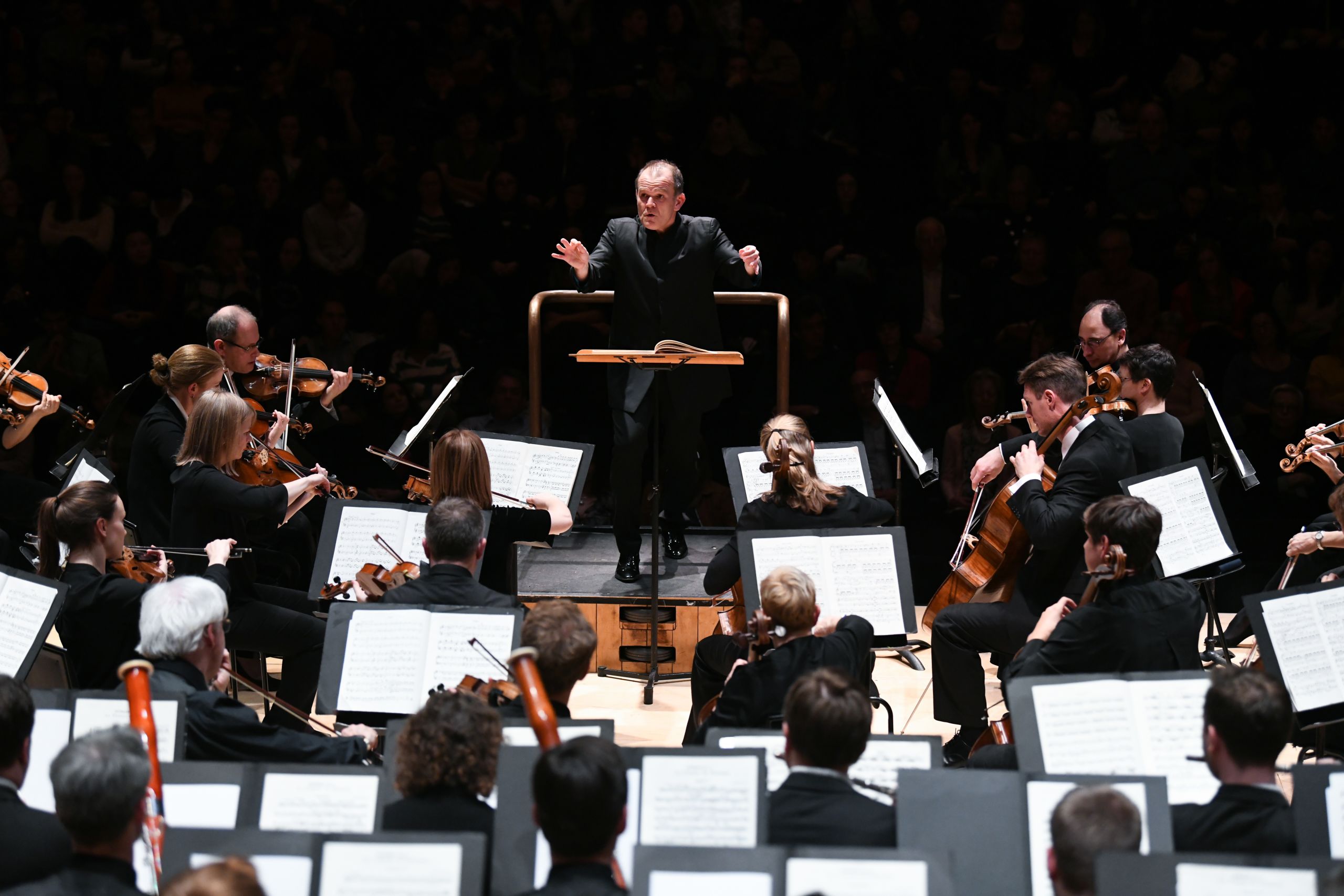
François-Xavier Roth (2000 joint winner)
François-Xavier Roth was joint winner of the Competition in 2000. This appointment initiated a long relationship, during which he regularly guest conducted concerts and LSO Discovery projects at the Barbican, and conducted 80 young musicians in LSO On Track performing alongside members of the LSO at the Opening Ceremony of the London 2012 Olympic Games. In 2017 he was announced as Principal Guest Conductor of the Orchestra. He now gives five concerts with the Orchestra and directs the LSO Panufnik Composers Workshops every season. Roth is also Generalmusikdirektor der Stadt Köln, Founder and Artistic Director of Les Siècles and Artiste Associé of the Philharmonie de Paris.
Following his success in the 2010 Competition, Clemens Schuldt became Principal Conductor of the Munich Chamber Orchestra and has guest conducted orchestras throughout Europe, North America and Asia, in addition to a number of opera appearances.
Alexandre Bloch, who won the Competition in 2012, is now Music Director of the Orchestre National de Lille, where plans this season include a Mahler cycle, and Principal Guest Conductor of the Düsseldorfer Symphoniker. Concerts this season include debuts with the Gürzenich-Orchester Köln and his stage debut for Opera de Lyon.
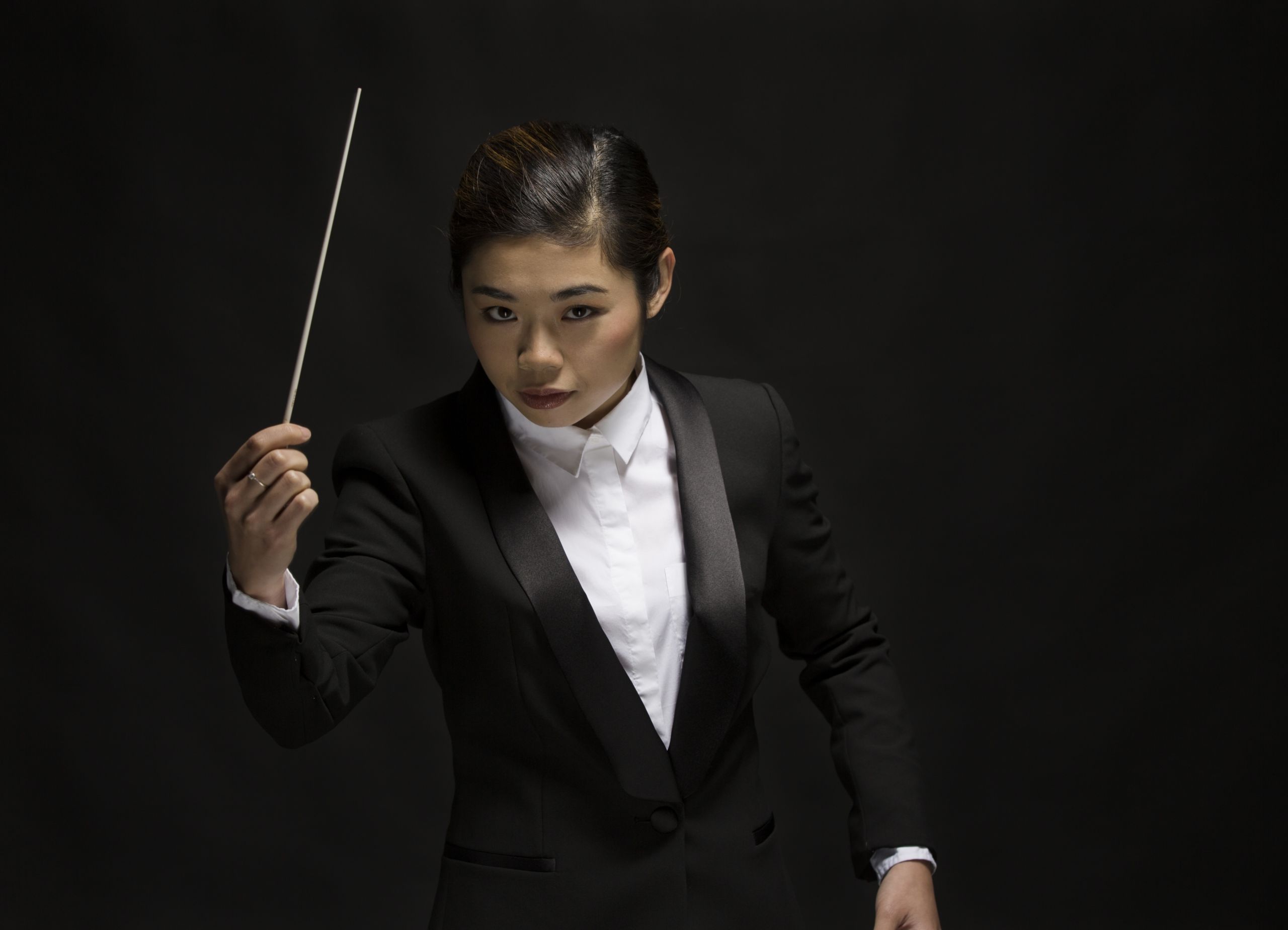
Elim Chan (2014 winner)
Elim Chan, winner of the Competition in 2014, is Chief Conductor of the Antwerp Symphony Orchestra and Principal Guest Conductor of the Royal Scottish National Orchestra. She also continues to work with the LSO, conducting the annual LSO Discovery Showcase and joining the Orchestra on tour in East Asia. Her most recent engagement with the LSO was in February 2020, when she conducted Ravel’s Daphnis and Chloe, Rachmaninoff’s Piano Concerto No 3, and the world premiere of James Albany Hoyle’s Thymiaterion.
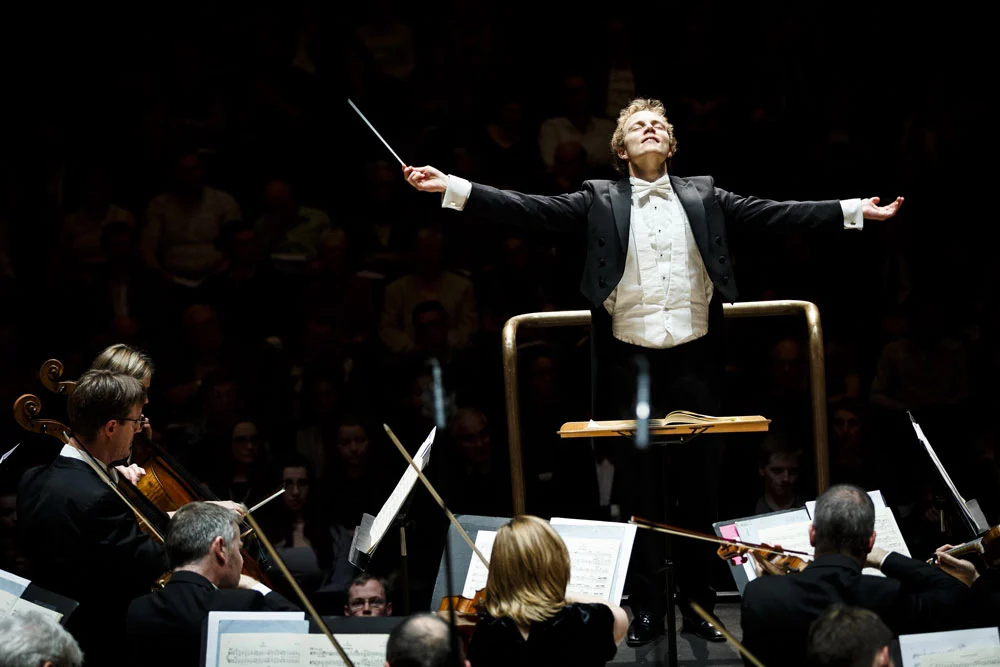
Niklas Benjamin Hoffmann (2016 winner)
Niklas Benjamin Hoffmann, winner of the competition in 2016, has since appeared as a guest conductor with the Haydn Orchestra Bolzano, Aarhus Symphony Orchestra, St Petersburg Symphony Orchestra and the Orchestra della Toscana. He made a memorable public debut with the LSO in March 2017, when he stepped in at short notice to conduct an open-air performance in Hanoi, Vietnam, in front of a 60,000-strong live audience.
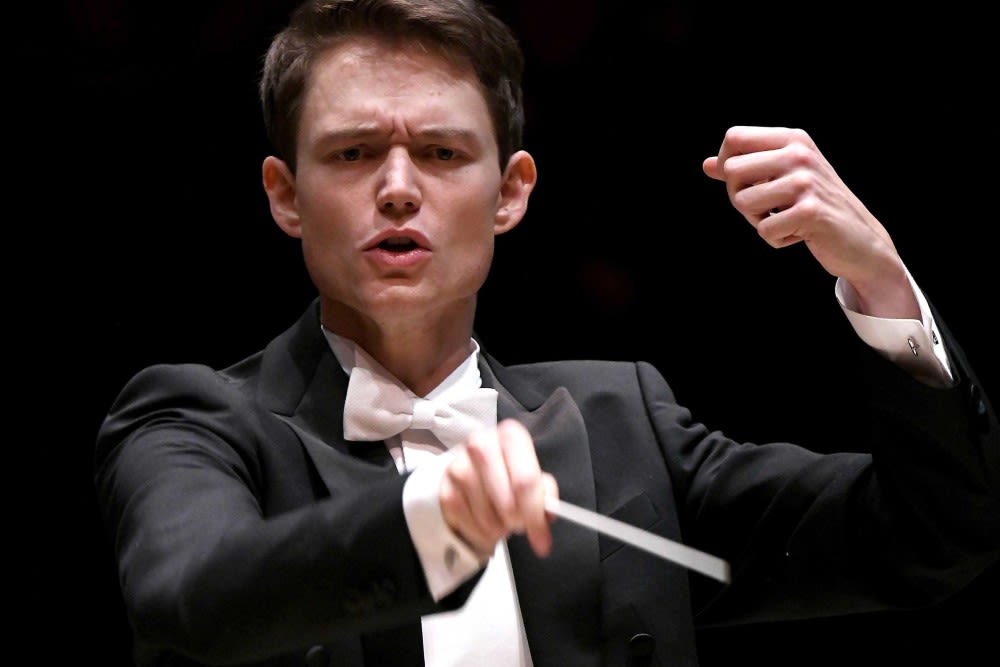
Felix Mildenberger (2018 winner)
Felix Mildenberger won the competition in 2018, and has gone on to be awarded the Prix Young Artist of the Year 2020 by the Gabler-Stiftung and the Festival der Nationen. In addition to his role as Assistant Conductor of the London Symphony Orchestra, he is Principal Conductor and Artistic Director of the Sinfonieorchester Crescendo Freiburg. During the 2019/20 season, he was Assistant Conductor to Paavo Järvi at the Tonhalle-Orchester Zürich, and has served as Assistant Conductor to Emmanuel Krivine at the Orchestre National de France.

François-Xavier Roth (2000 joint winner)
François-Xavier Roth (2000 joint winner)

Elim Chan (2014 winner)
Elim Chan (2014 winner)

Niklas Benjamin Hoffmann (2016 winner)
Niklas Benjamin Hoffmann (2016 winner)

Felix Mildenberger (2018 winner)
Felix Mildenberger (2018 winner)
London Symphony Orchestra
The London Symphony Orchestra was established in 1904, and is built on the belief that extraordinary music should be available to everyone, everywhere.
Through inspiring music, educational programmes and technological innovations, the LSO’s reach extends far beyond the concert hall.
Visit our website to find out more.

On Stage
Leader
Carmine Lauri
First Violins
Clare Duckworth
Ginette Decuyper
Laura Dixon
Gerald Gregory
Maxine Kwok
William Melvin
Elizabeth Pigram
Claire Parfitt
Laurent Quénelle
Harriet Rayfield
Sylvain Vasseur
Second Violins
Julián Gil Rodríguez
Sarah Quinn
David Ballesteros
Caroline Frenkel
Matthew Gardner
Gordan Mackay
Dániel Mészöly
Iwona Muszynska
Andrew Pollock
Paul Robson
Violas
Rachel Roberts
Gillianne Haddow
Malcolm Johnston
Anna Bastow
Germán Clavijo
Stephen Doman
Carol Ella
Robert Turner
Cellos
Rebecca Gilliver
Alastair Blayden
Jennifer Brown
Noël Bradshaw
Daniel Gardner
Amanda Truelove
Double Basses
Colin Paris
Patrick Laurence
Matthew Gibson
Thomas Goodman
Flutes
Gareth Davies
Rebecca Larsen
Piccolo
Sharon Williams
Oboes
Juliana Koch
Henrietta Cooke
Clarinets
James Gilbert
Chi-Yu Mo
Bassoons
Daniel Jemison
Helen Simons
Contra Bassoon
Dominic Morgan
Horns
Alexander Edmundson
Angela Barnes
James Pillai
Flora Bain
Fabian van de Geest
Trumpets
James Fountain
Niall Keatley
Trombones
Peter Moore
Philip White
Bass Trombone
Paul Milner
Tuba
Ben Thomson
Timpani
Nigel Thomas
Percussion
Neil Percy
David Jackson
Sam Walton
Meet the Members of the LSO on our website
Thank You
Committee of Honour
Salvatore Accardo
Riccardo Chailly
Valery Gergiev
Jacob Grierson
Evgeny Kissin
Carlo Majer
Sir Antonio Pappano
Maurizio Pollini
Carlo Rizzi
Yuri Temirkanov
Maxim Vengerov
Selection Panel 2021
Ginette Decuyper LSO First Violin
Sian Edwards Conductor
Patrick Harrild Former LSO Principal Tuba
William Relton Director
Jonathan Vaughan Guildhall School Vice-Principal
and Director of Music; former LSO Double Bass and LSO Chair
Jury
Lennox Mackenzie Chair of the Jury
David Alberman Principal Second Violin and LSO Chair
Andrew Constantine Conductor
Sian Edwards Conductor
Rachel Gough LSO Principal Bassoon
Sir James MacMillan Composer and conductor
Carlo Rizzi Conductor
Special thanks to
Kathryn McDowell and the Members of the London Symphony Orchestra.
The Selection Panel, which has spent many long hours watching videos and sifting through CVs and recommendations to choose 20 candidates.
Thank You for Watching



